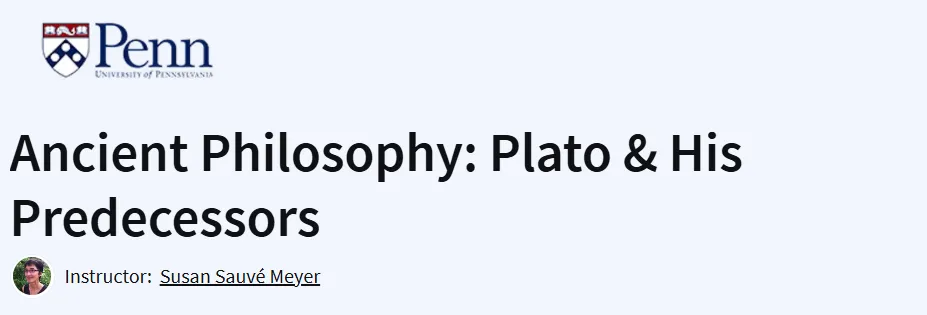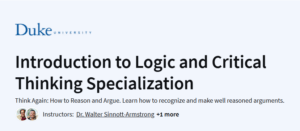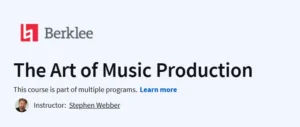What you will learn in Ancient Philosophy Course
Origins of Western Philosophy: Explore the beginnings of philosophy in ancient Greece, starting with the Presocratic natural philosophers like Thales, Anaximander, and Heraclitus.
Key Philosophical Concepts: Understand foundational ideas such as the nature of reality, the concept of change, and the existence of underlying order in the cosmos.
Socratic and Platonic Thought: Delve into Socrates’ ethical inquiries and Plato’s development of philosophical systems addressing knowledge, virtue, and the ideal state.
Philosophical Dialogues: Study the methods and teachings of these philosophers through their dialogues and writings.
Program Overview
The Milesians & Heraclitus
⏳ 2 hours
- Study the early Greek philosophers who sought the material principle of the cosmos and introduced radical new conceptions of the gods.
Parmenides to Plato
⏳ 74 hours
- Examine Parmenides’ challenge to naturalistic inquiry and the responses from later naturalists. Explore Plato’s portrayal of Socrates and his philosophical inquiries.
Plato on Virtue, Teaching, & Justice
⏳ 2 hours
- Investigate Plato’s views on virtue, the nature of teaching, and the concept of justice.
Plato on Reality & Goodness
⏳ 2 hours
- Delve into Plato’s ideas on the ultimate realities, the intelligible Forms, and the nature of goodness.
Get certificate
Job Outlook
Academic Careers: Ideal for those pursuing studies in philosophy, history, or religious studies.
Cultural Heritage: Beneficial for roles in museums, archives, and cultural institutions.
Publishing and Writing: Useful for writers and editors focusing on historical or philosophical content.
Explore More Learning Paths
Expand your understanding of ancient civilizations and philosophical thought with these related courses and resources. These learning paths will provide historical context and deeper insights into early philosophical ideas.
Related Courses
Introduction to Ancient Egypt and Its Civilization
Explore the history, culture, and philosophy of ancient Egypt, providing a foundation for understanding early human thought.The Ancient Greeks
Learn about Greek civilization, including politics, culture, and philosophy, to contextualize the works of Plato and his predecessors.
Related Reading
What Is Management
Discover how studying philosophy can inform critical thinking and decision-making in leadership and management contexts.
Specification: Ancient Philosophy: Plato & His Predecessors Course
|
FAQs
- Ancient philosophy laid the foundation for Western science, politics, and ethics.
- Concepts like justice, democracy, and rational inquiry still guide modern societies.
- Philosophical reasoning skills enhance critical thinking in today’s complex world.
- Lessons from Plato and pre-Socratics can be applied to leadership, decision-making, and problem-solving.
- No prior study of philosophy is required; the course introduces key thinkers clearly.
- Having curiosity about big questions (truth, justice, reality) is enough.
- Basic reading comprehension and willingness to reflect are the main skills needed.
- Optional background reading in mythology or history can be helpful but not essential.
- Improves critical thinking, analysis, and structured argument skills.
- Strengthens communication and persuasive writing abilities.
- Useful for careers in law, education, politics, journalism, and leadership.
- Adds depth to personal worldview, making one more adaptable and thoughtful.
- History focuses on events; philosophy focuses on ideas and reasoning.
- Literature interprets human experiences; philosophy examines concepts behind them.
- Ancient philosophy is less about memorizing facts and more about asking “why.”
- Students practice questioning, argument-building, and logical reasoning.
- Yes, philosophy provides frameworks for ethical decision-making.
- Encourages examining assumptions before making choices.
- Offers perspectives on justice, fairness, and responsibility.
- Helps build resilience by questioning life’s uncertainties rather than fearing them.





